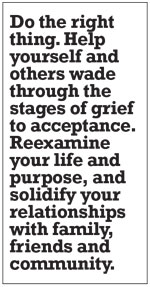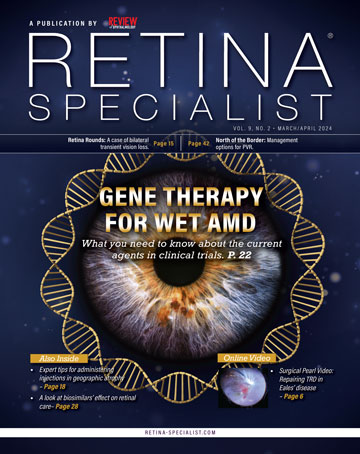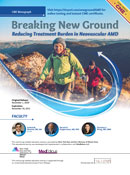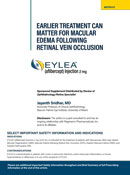Essay: Coping in the COVID-19 era |
 |
 |
The 6th Infantry Division of the United States Army holds the unchallenged record for consecutive days of continuous combat, 219 days, on the island of Luzon during World War II. Thousands of soldiers died and even more developed severe post-traumatic stress disorder and were never the same.
My grandfather was a soldier in the 6th during that time. Each night after a brutal day of fighting, the Americans would bomb the Japanese front lines a few hundred yards away. A few exhausted Japanese soldiers would sneak close to the American front line at night to avoid the bombing and catch some sleep, slipping back in the morning before dawn.
One morning my grandfather and his partner climbed out of their foxhole to find a young Japanese soldier sleeping a few yards away. My grandfather’s partner held his gun to the Japanese soldier’s head, but just as he pulled the trigger, my grandfather kicked his gun away, saving the soldier’s life. The Japanese soldier ran back to his side unharmed.
My grandfather went on to live a long, happy and successful life, dying in his mid-nineties surrounded by his 11 grandchildren. He told everyone who would listen that doing the right thing in that most difficult moment to save that young soldier provided every ounce of luck and success he encountered throughout his life.
This is our generational war
There are few moments in life where your response to a situation may define you forever. This COVID-19 crisis is one of them. It is our generational war. We are all facing enormous new and uncomfortable challenges and are attempting to figure out how to cope with the new normal.
Despite our struggles, this is the time to do what’s right. You must fight for your patients the best way you know how. Keep them safe in your clinics and provide them with optimal care for their eyes. They’ll be grateful and, as a result, you’ll feel more emotionally fulfilled.
Through it all, never forget to fight for yourself and your own time. So many people are relying on your health and well-being. You owe it to them to stay healthy and relaxed. Placing yourself at risk by not getting enough sleep or exercise, or by exposing yourself to an infected patient will likely result in far greater damage than doing the right thing for yourself.
Relationships matter
We should be most grateful for our relationships with family, friends and community. In 1938 the Harvard Happiness Study was initiated. The study, which continues to this day, originally followed 724 men throughout their lifetimes to determine what makes people happy. The results definitively showed that the most important contributor to happiness was the quality of relationships in our lives. People who were more socially connected to family, friends and community were significantly happier, physically healthier and lived longer than people who were less connected.
This is the time to nurture your relationships and reach out to your community. In particular, reach out to friends in the medical field who will best understand what you’re going through daily. Open up about your worries, challenges and stresses. While it may seem lonely working through each day covered in our shell of PPE, talking with friends quickly reminds us that we are all going through similar experiences and we’re going to be OK.
 |
Grieving our losses
Most physicians are experiencing various levels of grief over losing a way of life that we thought was normal. We think that we took the old way of life for granted. Gone are the days you could comfortably go to your favorite restaurant or out with a large group of friends or family to celebrate an accomplishment.
Many of us are walking slowly through the stages of grief. These include feelings of victimization, anger, frustration and, ultimately, helplessness.
We must help ourselves and each other recognize what we’re going through and reach the final and healthy stage of grief where we discover acceptance. This is where regular communication with close friends and family can help the most.
Helplessness is the most dangerous stage of grief. Research demonstrates this is where we’re at the greatest risk of suicide and addiction.
Each of us has the responsibility to reach out to friends and family to ensure that everyone gets past the feeling of helplessness. Helping others through this difficult time brings significant benefits to both those doing the helping as well as those struggling with helplessness.
Reaching acceptance
In the right circumstances, reaching acceptance can lead to peace and allow us to reexamine our own sense of meaning and purpose. We must take time to ourselves to address the following questions:
- Who am I?
- What do I want?
- What’s my purpose?
- What am I grateful for?
By answering these questions, we can redirect our lives in a way that positively affects our work, relationships and future choices.
Take a deep breath and rest assured there’s exciting progress in the search for therapeutics and vaccines to treat and prevent the virus. In all likelihood, we’ll see promising results for a therapeutic treatment and possibly even prevention of the disease in the next few months. More than 100 vaccine candidates are in the works, and we’re already starting to see promising results.
Bottom line
Do the right thing. Help yourself and others wade through the stages of grief to acceptance. Reexamine your life and purpose. Solidify your relationships with family, friends and community. Doing so will allow you to not just survive this pandemic, but also thrive as it ends. Above all else, take care of yourself and others. RS



